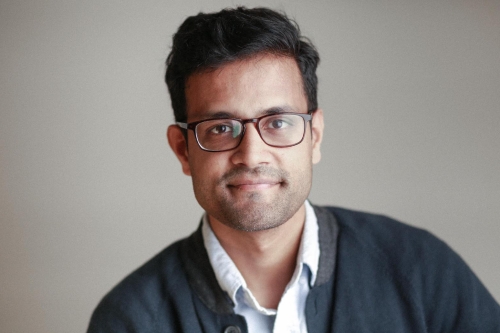We are thrilled to announce that Utsav Shashvatt, CEE postdoctoral fellow, has received the 2022 Foundation for Food & Agriculture Research OCP Disruptive Fertilizer Technology Fellowship! This two-year program has a total fund of $500,000, sponsored by FFAR and OCP North America. The fellowship aims to provide early-career scientists with opportunities to advance research on precision fertilizer application methods, nutrient recommendation methods, and land applications of animal waste. The program seeks to enhance fertilizer efficiency, leading to safe, effective, and commercially scalable innovations in fertilizer products that farmers easily understand.
Shashvatt, a member of Prof. Kara Nelson's lab group, is researching the recovery of nitrogen from source-separated urine through ion exchange processes. He holds a Bachelor of Technology in Metallurgical and Material Science Engineering from the Indian Institute of Technology Bombay and a Ph.D. in Environmental Engineering from the University of Maryland Baltimore County. He was awarded $74,997 through the FFAR-OCP Fellowship, which was matched by UC Berkeley, for a total award of $91,106. His project involves creating two high-value fertilizers, controlled release, and liquid, from human waste to offset traditional fertilizers' use. The increased use of waste-derived fertilizers provides an opportunity to develop fertilizers from renewable resources, reducing dependence on non-renewable resources.
Shashvatt's current research focuses on optimizing an ion exchange-based process for nitrogen recovery from urine and generating a novel slow-release fertilizer. He also leads a team to build a bench-scale reactor for automating nitrogen recovery from source-separated urine. His work has implications for effective onsite waste-to-resource conversion and establishing local circular economies in communities worldwide.

